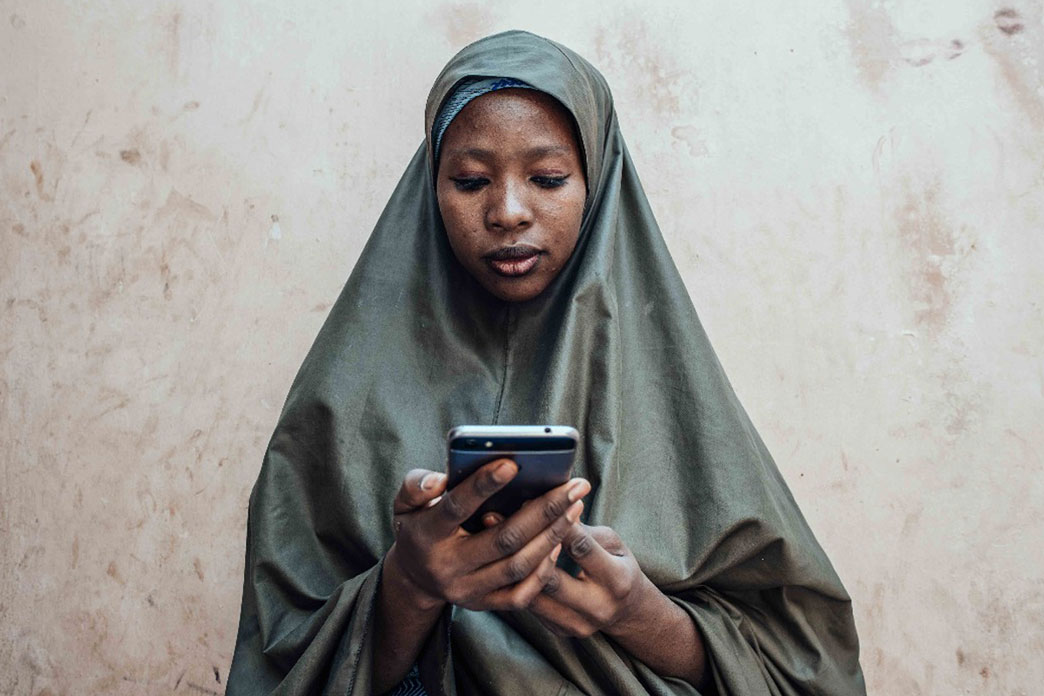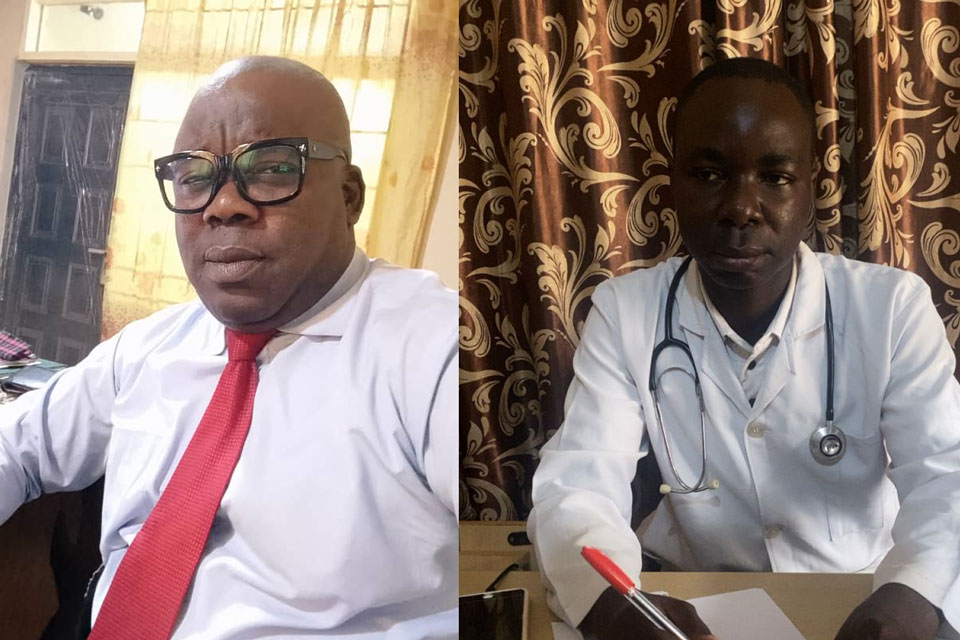In Nigeria, AI tools are changing how people access healthcare
They live in your pocket, and they have all the time in the world: for some worried parents, talking to healthcare bots about immunisation may be just what the doctor ordered.
- 3 June 2025
- 5 min read
- by David Akinadewo-Adekahunsi

Mabel Nwachukwu’s baby was two months old, and she was worried she didn’t know enough about her child’s health to make informed decisions about questions like immunisation.
That was when Nwachukwu, a resident of Umuahia in Abia State, south-eastern Nigeria, found an online artificial intelligence (AI)-powered health information service from the healthcare access company Clafiya.
“Clafiya has been helpful to me,” the young mum told VaccinesWork. “I didn't know much about immunisation, so my husband suggested that we try Clafiya to get informed. Then diphtheria had just broken out, and I was really scared. Everybody in our area in Umuahia was scared. Clafiya helped me see the need for immunisation, as well as make an informed decision. I took my child for immunisation and I'm happy I did, because I now have peace of mind.”
“Not alone”
A 2019 study revealed that Abia State’s rate of vaccination was one of the lowest in the south-eastern region with only 49.8% of children aged 12–23 months having received basic vaccinations. The state’s high rate of missed vaccination has been linked to several factors: lack of information on children's vaccination, presentation of children on the ‘wrong’ immunisation days, non-availability of the mothers due to illness, parents’ travel and farm work.
Many of those factors boil down to communication gaps between health workers and the community. Minor misunderstandings can crop up from cultural or linguistic differences, and can, in relation to immunisation, be mortally costly.
Eunice Okoye had heard about the risks of not vaccinating, but still, feeling nervous and ill-informed, she dithered. Like Nwachukwu and an increasing number of Nigerian parents, she turned to AI-powered info services to get clued up. “My mother-in-law was worried about my son’s vaccination status. She translated the fear to me and my husband. Through AwaDoc, I saw the need for vaccination. After I took my son for it, my mother-in-law had peace of mind. I was happy. AwaDoc makes you feel you're not alone if you have challenges,” she told VaccinesWork.

Monica Onuekusi, a mother-of-two in Umuahia, Abia State, echoed Okoye. “I used to lack information on immunisation for my children. I felt truly alone, especially when people were saying different things. A friend introduced my husband to AwaDoc. I got a lot of information, as well as got introduced to forums. I took my child for immunisation. I no longer feel alone. AwaDoc has been helpful,” she told VaccinesWork.
“Built by Africans, for Africans”
AwaDoc is not the only AI-based health tool proving impactful in Nigeria – but it’s one that’s picking up momentum rapidly, having only launched fully this month.
Designed to democratise healthcare delivery by leveraging the power of AI, AwaDoc built a WhatsApp chatbot to support health programmes in Nigeria – including promoting childhood immunisation.
As of April this year, about 29,893 people had opted into the initiative to get further information from a trusted, reliably accurate source. AwaDoc staff say it’ll be able to do much more than that, in time.
The Nigerian coordinator of the project, Dr Chinonso Egemba, sees the chatbot also as a tool rooted in local insights. “The platform is built by Africans, for Africans, to provide information on such activities as vaccination. This is not just another AI tool riding the hype wave. It’s one rooted in local insights, contextual relevance and cultural understanding. It’s able to predict outbreaks of childhood and adult diseases. We’re riding a health system that finally has us in mind,” said Egemba.
Plugging the gaps
Dr Akinlolu Fawehinmi, Director of Research and Rector of the Nigeria College of Natural Medicine Technology, Lagos, in an exclusive interview with VaccinesWork, shared his perspective on the transformative role of artificial intelligence (AI) in strengthening vaccine delivery systems across the country.
According to Dr Fawehinmi, vaccine delivery remains a critical pillar of any effective immunisation programme within healthcare systems. But gaps persist, he argues, and these highlight the potential value of innovative, data-driven solutions.
AI-driven models such as AwaDoc and Clafiya, Dr Fawehinmi explained, have already begun to address some of them. But AI can go further, he says, for example by helping provide a more accurate and structured forecast of vaccine delivery.
Broadly speaking, the researcher explained, AI has greatly improved healthcare providers’ ability to interpret complex data by recognising patterns from large multidimensional and multimodal datasets, facilitating more efficient service delivery and enabling the government to better assess the impact of demographic and socio-demographic factors on immunisation outcomes.
“Artificial intelligence has introduced a level of precision and strategic insight that our traditional systems lacked,” Dr Fawehinmi told VaccinesWork. “I completely align with the adoption of AI in addressing vaccine delivery challenges in Nigeria.
There are risks to the use of AI, Dr Fawehinmi acknowledged – like bias in training data, which could seed unequal outcomes in vaccine development or distribution. Those pitfalls need management. But AI’s potential for positive impact is not to be ignored. “I’m all for it” he said.





